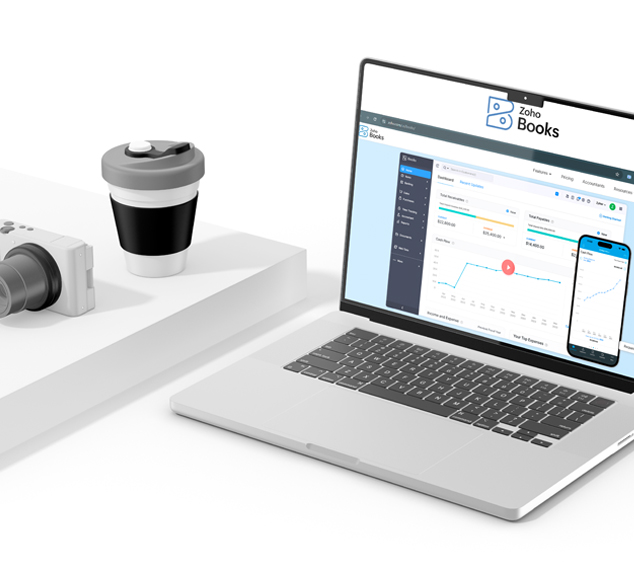6 min read
5 Best Accounting Software Packages for Small Businesses in 2025
For accounting firms that cater to small businesses, the symbiosis between the firm and its clients is paramount. The chosen accounting software can significantly influence this relationship, impacting everything from daily operations to strategic financial planning. In today's fast-paced business environment, the right software can facilitate seamless integration between a small business and its accounting firm, enhancing collaboration, improving accuracy, and driving efficiency. Here's a look at top accounting software options that foster strong connections between small businesses and their accounting partners.

| Software | Best For | Key Features | Collaboration & Integrations | Ideal For Firms |
| QuickBooks Online | Small businesses seeking automation and scalability | AI-powered late payment reminders, personalized invoices, and expense report automation. Integrates with Shopify for order and payout imports. | Hundreds of third-party integrations, including Shopify | Scalable solution for growing firms managing multiple clients |
| Xero | Small businesses and startups | Onboarding specialists (first 90 days), minimalist design, W-9 and 1099 management, short-term cash flow tracking | Seamless Shopify integration, third-party app support | Ideal for startups and small firms needing ease of use |
| FreshBooks | Service-based businesses | Invoicing, expense and income tracking, automated emails, and profit projections | Limited inventory management, collaborators at extra cost | Best for service-based firms with basic accounting needs |
| Wave | Cost-conscious small businesses | Free plan with unlimited invoices, bookkeeping records, and online payments. Pro plan offers auto-imported bank transactions and receipt capture | No Shopify integration, limited third-party integrations | Great for small firms or startups on a budget |
| Zoho Books | New or budget-conscious businesses | Free version for companies with <$50K annual revenue, mobile app, inventory tracking, auto-completion of bookkeeping tasks | Integrates with PayPal, Stripe, and Shopify (via Flow, with additional cost) | Efficient for firms working with Zoho ecosystem clients |
QuickBooks Online
QuickBooks Online stands out for its ubiquity and familiarity among accounting professionals. Its comprehensive features support a wide range of business activities, from invoicing and payroll to advanced reporting.
For accounting firms, QuickBooks offers collaborative tools like simultaneous access to financials, real-time updates, and easy sharing of reports and documents. Its extensive ecosystem of add-ons and integrations means that both small businesses and accounting firms can tailor the experience to their needs, ensuring a cohesive financial management process.

Pros:
|
Cons:
|
Xero
Xero’s cloud-based platform is a haven for firms looking for real-time financial data and insights.
The unlimited user model allows both small business teams and their accounting partners to access financial data anytime, anywhere, fostering a transparent and inclusive approach to financial management.

Pros:
|
Cons:
|
FreshBooks
FreshBooks is designed with service providers in mind, offering intuitive invoicing, time tracking, and project management tools. For accounting firms, FreshBooks makes it easy to collaborate with clients on financial management.
The software's emphasis on client interactions, such as simplified billing and payments, ensures that firms can offer a more personalized, service-focused experience to their clients, enhancing client satisfaction and retention.

Pros:
|
Cons:
|
Wave
Wave provides a free, straightforward accounting solution for small businesses, making it an ideal choice for startups and small enterprises with tight budgets.
For accounting firms, Wave offers the basic tools needed to manage accounting and invoicing for their clients without additional software costs. This can be particularly appealing for firms serving clients who are just starting out or those with straightforward financial management needs.

Pros:
|
Cons:
|
Zoho Books
For small businesses already leveraging the Zoho ecosystem, Zoho Books offers an integrated accounting solution that seamlessly syncs with other Zoho apps.
Accounting firms working with such clients can benefit from the streamlined data flow between Zoho applications, making it easier to manage finances, customer relationships, and inventory in a unified platform. This integration facilitates a more holistic approach to business management, allowing firms to provide comprehensive advisory services.

Pros:
|
Cons:
|
How to Choose the Right Accounting Software
Define Your Business Needs
Before choosing a platform, consider your business type, size, and accounting needs. Service-based businesses should prioritize invoicing and project management (FreshBooks). Product-based companies need inventory tracking (QuickBooks, Zoho Books). Freelancers should focus on simplicity and affordability (Wave, FreshBooks). Growing SMBs or firms require scalability, multi-user access, and advanced reporting (QuickBooks Online, Xero).
Consider Integration Capabilities
Your accounting software should integrate with your existing tools, such as e-commerce platforms, CRMs, or payment gateways. E-commerce businesses need Shopify or Stripe integrations (QuickBooks, Xero). CRM-heavy companies benefit from native connections (Zoho CRM + Zoho Books). Automation-first firms should choose platforms with built-in or third-party automation (QuickBooks, Botkeeper) to reduce manual work.
Prioritize Cloud Accessibility and Collaboration
For small businesses working with accounting firms, cloud-based platforms are essential for real-time collaboration and data sharing. Remote teams or accounting partnerships will benefit from cloud platforms like Xero and QuickBooks, which allow both you and your accountant to access financial data simultaneously.
If you need multi-user access, Xero offers unlimited user accounts, making it perfect for teams needing broad accessibility. For on-the-go management, platforms with robust mobile apps (like Zoho Books) make it easier to manage finances remotely.
Evaluate Usability and Learning Curve
Accounting software should simplify finances, not complicate them. User-friendly platforms like FreshBooks and Wave are easy for non-accountants. Feature-rich options like QuickBooks and Xero offer advanced tools but may require more training. Xero’s 90-day specialist support helps new users onboard smoothly.
Plan for Scalability
As your business grows, choose software that scales with you. Tiered platforms like QuickBooks and Xero offer advanced tools for expanding companies. Startups can start with cost-effective options like Wave or Zoho Books and upgrade later.
Prioritize Security and Compliance
Your accounting software should be able to protect sensitive data. Cloud platforms like Xero, QuickBooks, and Zoho Books offer bank-level encryption. Choose software with permission controls and support for multi-currency transactions and tax compliance if you work internationally.
Building a Collaborative Future
Choosing the right accounting software is about more than just features; it's about finding a platform that supports a collaborative and transparent relationship between small businesses and their accounting firms. The ideal software should offer:
-
Ease of Use: Both clients and firms benefit from intuitive interfaces that reduce the learning curve and simplify financial management.
-
Accessibility: Cloud-based platforms ensure that financial data is accessible to both parties, anytime and anywhere, facilitating timely decisions and advice.
-
Integration: The ability to integrate with other business tools and systems streamlines operations and provides a more comprehensive view of the business.
-
Scalability: As small businesses grow, the software should be able to accommodate evolving needs without requiring a transition to a new platform.
-
Security: Protecting sensitive financial data is paramount, making robust security features a critical consideration for any software choice.
For users of QBO and Xero in particular, Botkeeper provides a platform that enables the transparent relationship and collaboration firms seek with their small business clients. Botkeeper takes on the tedious and time-consuming tasks your bookkeeper performs, reducing the amount of time your firm spends on accounting. It also saves you money and eliminates virtually all errors in your bookkeeping efforts. Basically, Botkeeper added to QBO or Xero makes a dream team of automation!
The relationship between small businesses and their accounting firms is significantly enhanced by the choice of accounting software. By selecting a platform that prioritizes collaboration, integration, and ease of use, accounting firms can provide exceptional service to their clients, laying the foundation for mutual growth and success.
To learn more about accounting and bookkeeping software, be sure to visit Botkeeper’s free, dedicated resource.





